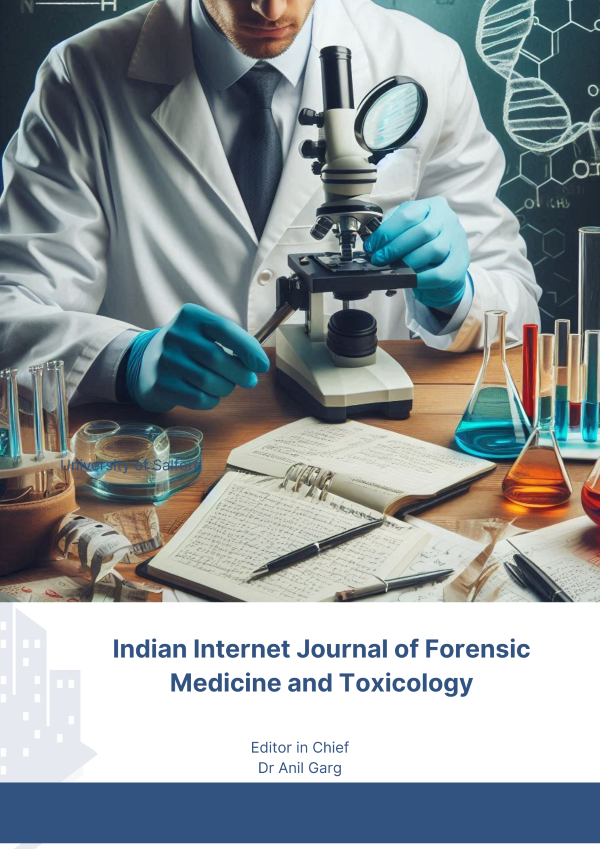Role of Forensic Medicine Expert in Police Encounters
DOI:
https://doi.org/10.48165/Keywords:
Forensic medicine Expert, Police encounter, Postmortem, Human RightsAbstract
Police encounter is the term used by the Indian Police Service or Indian Military/Paramilitary forces when explaining the death of an individual at their hands who was deemed by them to be a militant or ‘subject of interest’. It refers to extra judicial killings or executions not authorised by a court or by the law. Such encounters also go by the name of ‘staged encounters’, where weapons are planted on or near the dead body to provide a justification for killing the individual. Common reasons given for the discrepancy between records showing that the individual was in custody at the time of his encounter, is that he/she had escaped1. The police in Indian metro cities have a very high rate when it comes to encounter killings. Since October 1993: 2,560 cases of police encounters have been brought into the notice of National Human Rights Commission (NHRC), of them according to NHRC 1,224 cases have been found fake encounters. It means every second police encounter is fake in the country2. Human right activists consider these encounter killings, together with torture by police in lock-ups and custodial deaths, to be gross human right violation. The fact that the dead person had a criminal background that does not give a legal authority to police for such encounters, as the law decide on the basis of evidence of such allegations.
Downloads
References
1. http://En.wikipedia.org/wiki/Encounter_killings_by_police.
2. http://www.twocircles.net/..../every_second_police_ encounter_india_fake.html
3. Dead Silence: The legacy of Abuses in Punjab Human Right a Watch/Asia and Physicians for Human rights,1994 www.hrw.org/sites/default/files/reports/India0594
4. Campbell Bruce B, Brenner, Arthur David. Dead squads in Global perspective: Murder with Deniability. Palgrave Macmillan. 2002-10-01; pp.265. ISBN9781403960948. Retrieved 19 June 2010.
5. Country Reports on Human Right Practices (India).U.S. State Department 1993. http://dosfan.lib.uic.edu/ERC/democracy/ hrp_index.html
6. Pepper, Daniel. “India makes A Place for Dirty harry” NY Times. 2009-02-28. Retrieved 2009-05-08.
7. “India –who killed the Sikhs” Dateline. 4/3/2002. Retrieved 2009-05-08
8. Daily News Activist newspaper, Lucknow, Tuesday, 29July 2009.
9. http://www.hrdc.net/sahrdc/hrfeatures/HRF82.htm 10. http://www2.ohchr.org/English/law/ccpr.htm 11. www.sacw.net/index.php?page=imprimir_articulo&id_article
12. www.sacw.net/index.php?page=imprimir_articulo&id_ articlewww.pucl.org/reports/AndhraPradesh/2001/note.htm

